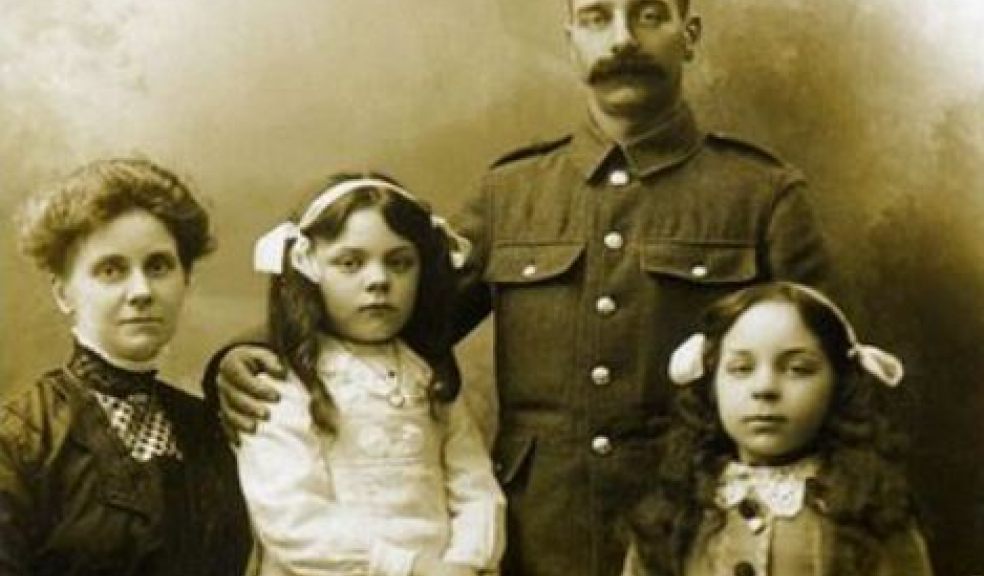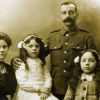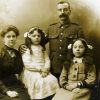
Do you recognise this Exeter WW1 family?
A major historical project, designed to preserve the history of army children from the First World War, is attempting to trace an Exeter family from an archived photo (above).
Currently all that is known about the photo is it was taken and developed by Alan Mills of Paris Street in Exeter but there are no obvious clues to help identify the two girls and their parents.
The father’s uniform also doesn’t bear any distinguishing markings making it difficult to date the photo as the evolving elements of military uniforms (such as badges and accoutrements), are essential guides when trying trace the origins of photographs such as this.
However both of the girls appear to be wearing distinctive heart-shaped pendants and it is hoped that they might hold a clue to the girl’s identities in the memories of somone from the city.
The family photo is just one of dozens of archived photos on display as part of the major new project attempting to better connect people with the lives, stories and impact of the First World War in connection with the First World War Centenary.
The photographs have been collected by The Army Children Archive (TACA) as a virtual resource that chronicles British army children’s history.
TACA was founded by Clare Gibson ,who from a British army family herself, is seekig to highlight the difficulties of life for children in the military.
In a blog post Clare explains the reasons behind the project, she writes: “During the First World War, an enormous number of British children became ‘temporary’ army children when their civilian fathers joined the British Army as volunteers or conscripts.
“ A significant proportion of British families today will count such children among their ancestors, but may not appreciate fully how having a soldier–father affected the lives – psychologically, as well as practically – of their antecedents.
“Having a father who is a peacetime soldier colours a childhood, as many an army child would confirm.
“So having a soldier–father when one’s childhood coincides with a world war and a period of national crisis cannot fail to have an impact, from the daily sadness of missing an absent parent through the euphoric joy of reunion, however fleeting, to the trauma inflicted by a father’s injury or death.”
The initial set comprises ten photographic portraits and more are being added at the rate of about one a week.
While most of these youngsters are anonymous, as much information as is known about their families or that can be gleaned from the photographs, has been given.
The project ‘The Army Children of the First World War’ has been established by TACA as part of the First World War Centenary Partnership which is led by IWM (Imperial War Museums).
Diane Lees, Director-General of IWM, says: “We are all connected to the First World War, either through our own family history, the heritage of our local communities, or because of its long-term impact on society and the world we live in today.
“TACA, through its ‘The Army Children of the First World War’ project, is enabling people to understand the impact of the Great War on society today.”














